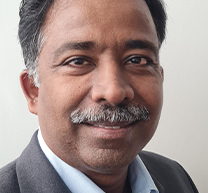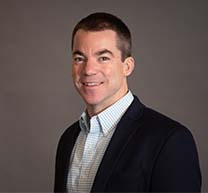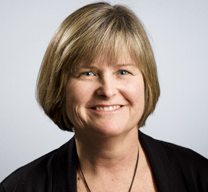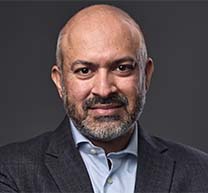GEC alla Conferenza annuale Responsible Business 2024
L'EVOLUZIONE DELL'ELETTRONICA SOSTENIBILE: PREPARARE LA CATENA DI FORNITURA PER I CRITERI EPEAT DI PROSSIMA GENERAZIONE
21 novembre 2024, dalle 9.00 alle 12.00 PST
Il marchio di qualità ecologica EPEAT è da quasi 20 anni un segnale fondamentale per il mercato tecnologico, in grado di allineare gli acquirenti, i marchi di elettronica e le altre parti interessate su una definizione condivisa di cosa significhi per un prodotto essere "sostenibile". Questa definizione si sta evolvendo dopo anni di sforzi da parte di più parti interessate per rivedere i criteri EPEAT, creando un nuovo punto di riferimento per soddisfare le crescenti aspettative in questo settore. La prossima generazione di criteri EPEAT non solo alzerà l'asticella per la comunità globale, ma richiederà anche una maggiore interazione con i partner della catena di fornitura.
Unisciti al Global Electronics Council (GEC) alla conferenza annuale Responsible Business 2024 per un evento interattivo sull'importante ruolo dei partner della catena di fornitura nello sviluppo di prodotti sostenibili, compreso il ruolo dell'assemblaggio finale e dei produttori di componenti nel soddisfare le imminenti revisioni degli standard per l'ecolabel EPEAT.
Esplorate queste revisioni dei criteri e i requisiti specifici dei fornitori che riguardano quattro aree materiali, tra cui:
- Catena di approvvigionamento responsabile
- Il clima
- Circolarità
- Prodotti chimici
Inoltre, approfondiremo come gli strumenti e le risorse di Responsible Business Alliance (RBA) e Responsible Minerals Initiative (RMI) possano accelerare il rispetto di questi criteri. I partecipanti potranno conoscere le risorse, i programmi e i servizi di consulenza progettati per aiutare la vostra azienda e i vostri fornitori a diventare "EPEAT Ready". Non perdete questo evento di 3 ore per i partner: la partecipazione è gratuita e sarà disponibile un rinfresco!
Relatori in evidenza

Balan Shanmuganathan

Cassie Gruber

Christy Jung
Responsabile di programma, HP

Bob Mitchell
Amministratore delegato del Consiglio globale dell'elettronica

Patricia Dillon
Vicepresidente, Criteri e sviluppo delle categorie, Consiglio globale dell'elettronica

Kaushik Ramakrishnan
Vicepresidente, Sviluppo del mercato globale e strategia, Consiglio globale dell'elettronica
Agenda dell'evento
21 novembre 2024 - Tutti gli orari di seguito riportati si riferiscono all'ora locale del Pacifico.
9:00 - 10:00 - La prossima fase di EPEAT: gli obiettivi di GEC per l'impatto sostenibile e i criteri EPEAT aggiornati
Unisciti ai leader di GEC per condividere come l'ecolabel EPEAT si sta evolvendo per ampliare la copertura dei temi della sostenibilità dei materiali e rafforzare il coinvolgimento della catena di fornitura attraverso l'implementazione della prossima generazione di criteri EPEAT. La sessione tratterà una panoramica olistica dei criteri recentemente rivisti, evidenziando i progressi critici nelle catene di fornitura responsabili, nella riduzione dell'impatto sul clima, nella sicurezza chimica e nella progettazione circolare dei prodotti. Seguirà una chiacchierata a tutto campo per capire come questi standard in evoluzione daranno forma al futuro dell'elettronica sostenibile e promuoveranno cambiamenti misurabili in tutto il settore.
10:00 - 11:00 - Prospettive della catena di fornitura: Un'immersione profonda nei criteri rivisti di EPEAT
In questa sessione esploreremo i criteri EPEAT aggiornati dal punto di vista dei fornitori. Esamineremo le complessità dei criteri aggiornati, offrendo spunti pratici su come questi cambiamenti influiscono su ogni fase della catena di fornitura. Nella seconda chiacchierata, un esperto del settore approfondirà le sfide e le opportunità che questi criteri comportano per la produzione di componenti, aiutando i partecipanti a comprendere la portata dell'impatto di EPEAT sui fornitori.
11:00 - 11:30 - Coinvolgimento dei fornitori GEC: Risorse e programmi per accelerare la preparazione della catena di fornitura
Informatevi sugli strumenti e le risorse che GEC offre per aiutare i fornitori a soddisfare i criteri EPEAT rivisti. Questa sessione fornirà una panoramica delle risorse, dei programmi e dei servizi di consulenza in arrivo per creare una catena di fornitura "EPEAT Ready". Seguirà la nostra chiacchierata finale, che offrirà spunti di riflessione sul coinvolgimento dei fornitori, evidenziando i modi per promuovere la collaborazione e ottenere risultati significativi.
11:30-12:00 - Tavole rotonde con il GEC
Concepita come un forum aperto, questa sessione offre ai partecipanti un orario d'ufficio dedicato e incontri individuali con il personale GEC per rispondere alle domande specifiche delle sessioni precedenti. Sia che abbiate bisogno di chiarimenti sui criteri, sulle risorse dei fornitori o di indicazioni sulle imminenti modifiche dei criteri, questo forum aperto fornisce il supporto personalizzato di cui avete bisogno per navigare con fiducia nei criteri EPEAT di prossima generazione.
Maggiori informazioni sul Consiglio globale dell'elettronica
GEC sta lavorando per accelerare il cambiamento sistemico per creare un'industria elettronica sostenibile al 100% entro il 2050. Ciò significa emissioni nette zero, rifiuti zero, neutralità dell'acqua e un impatto negativo minimo sull'ambiente e sui diritti umani durante l'intero ciclo di vita dei prodotti e dei servizi.
In qualità di gestori del marchio di qualità ecologica EPEAT, definiamo lo standard globale per l'elettronica sostenibile. Grazie al nostro accreditamento, alla nostra attività di advocacy e alla nostra leadership, mettiamo i produttori e gli acquirenti di elettronica in condizione di raggiungere i loro obiettivi di sostenibilità. Stiamo ridisegnando il rapporto del mondo con la tecnologia e le risorse naturali, consentendo di trasformare l'elettronica da una sfida ambientale e sociale in continua crescita a una soluzione sostenibile.
Maggiori informazioni sull'Alleanza per le imprese responsabili
La Responsible Business Alliance è la più grande coalizione industriale del mondo dedicata alla condotta responsabile delle imprese nelle catene di fornitura globali.
Fondata nel 2004 da un gruppo di aziende leader nel settore dell'elettronica, la Responsible Business Alliance (RBA), precedentemente Electronic Industry Citizenship Coalition (EICC), è un'associazione senza scopo di lucro composta da aziende del settore dell'elettronica, della vendita al dettaglio, dell'auto e dei giocattoli, impegnata a sostenere i diritti e il benessere dei lavoratori e delle comunità di tutto il mondo coinvolte nelle catene di fornitura globali. I membri dell'RBA si impegnano e sono tenuti a rispettare un Codice di Condotta comune e utilizzano una serie di strumenti di formazione e valutazione dell'RBA per sostenere il miglioramento continuo della responsabilità sociale, ambientale ed etica delle loro catene di fornitura. Oltre ai membri dell'RBA, migliaia di aziende che sono fornitori di primo livello dei membri sono tenuti ad applicare il Codice di condotta RBA. Per maggiori informazioni, visitate il sito https://www.responsiblebusiness.org/about/rba/.

Patricia Dillon
Vicepresidente, Criteri e sviluppo delle categorie, Consiglio globale dell'elettronica
Patty supervisiona il processo di sviluppo dei criteri, la strategia e il team di GEC per le categorie di prodotti EPEAT nuove ed esistenti e per altre iniziative di GEC. È a capo dell'iniziativa volta a trasformare il processo di sviluppo dei criteri GEC in un processo più efficiente, agile e orientato alla scienza, che coinvolga un ampio numero di stakeholder ed esperti. Il suo team è responsabile della sorveglianza continua e dello sviluppo di nuove categorie di prodotti, della preparazione della Ricerca sullo Stato della Sostenibilità sull'impatto dell'elettronica sulla sostenibilità e sulle strategie per mitigare gli impatti, della gestione dei processi multi-stakeholder che creano e mantengono i criteri di sostenibilità per l'implementazione nel Registro EPEAT e dello sviluppo del calcolatore dei benefici ambientali dell'elettronica di GEC. È entrata in GEC nel 2016, apportando una profonda conoscenza dello sviluppo di criteri basati sul consenso e una lunga storia con EPEAT. È stata coinvolta negli standard che costituiscono le fondamenta di EPEAT fin dalla sua nascita, prima come stakeholder invitato a partecipare allo sviluppo dello standard iniziale per i computer e, successivamente, in posizioni di leadership per gli standard per i televisori, i server e il fotovoltaico.
Patty ha oltre trent'anni di esperienza nella ricerca, nella facilitazione e nella gestione di programmi per lo sviluppo di standard, politiche ambientali e strategie aziendali, con un'ampia attività nei settori dell'elettronica, della plastica e degli imballaggi. Prima di entrare in GEC, Patty è stata consulente indipendente, responsabile part-time del programma presso il Northeast Recycling Council, dove ha gestito lo State Electronics Challenge e il Toxics in Packaging Clearinghouse, e collaboratrice di ricerca presso la Tufts University. Patty ha conseguito un master in Ingegneria civile con specializzazione in Ingegneria ambientale presso la Tufts University e una laurea in Biologia presso la Tufts University.

Bob Mitchell
Amministratore delegato del Consiglio globale dell'elettronica
In qualità di amministratore delegato del Global Electronics Council, Bob fornisce la leadership e la supervisione strategica dell'organizzazione per realizzare la sua visione e missione. Ha una profonda esperienza in materia di affari e diritti umani, sostenibilità ambientale, gestione di organizzazioni no-profit e programmi di sostenibilità aziendale.
In qualità di ex vicepresidente per i diritti umani e l'ambiente presso la Responsible Business Alliance (RBA), Bob ha guidato lo sviluppo della strategia e l'attuazione di programmi di condotta aziendale responsabile in un ambiente multi-settoriale e multi-stakeholder. In questo ruolo, ha guidato la nascita e il lancio di iniziative significative in aree quali la Due Diligence sul lavoro forzato, la decarbonizzazione delle catene di fornitura, la circolarità e la resilienza della catena di fornitura.
È un veterano di Hewlett Packard e Hewlett Packard Enterprise, con oltre un decennio e mezzo di lavoro nel campo della sostenibilità. Prima di lavorare all'RBA, è stato direttore della responsabilità sociale e ambientale globale di Hewlett Packard Enterprise, guidando un team di professionisti nei settori dei diritti umani, della gestione ambientale dei prodotti, della responsabilità della catena di approvvigionamento e dei minerali di conflitto, tra le altre aree tematiche. Bob ha anche fatto parte del Consiglio di amministrazione di RBA e del Consiglio consultivo di Social Accountability International (SAI). Ha conseguito un MBA presso l'Università dell'Arizona e una laurea presso l'Università della Virginia.

Kaushik Ramakrishnan
Vicepresidente, Sviluppo del mercato globale e strategia, Consiglio globale dell'elettronica
In qualità di direttore senior della crescita strategica, Kaushik Ramakrishnan guida l'impatto a lungo termine e la strategia di crescita di GEC. Come membro del team di leadership senior, lavora a stretto contatto con il CEO e la leadership di GEC per ideare, incubare e realizzare opportunità di crescita elevata a livello globale per realizzare la missione e la visione dell'organizzazione.
Kaushik ha più di 20 anni di esperienza nel settore privato, nelle startup e nelle organizzazioni non profit in quattro continenti. È un professionista della sostenibilità che ha lavorato a lungo sulle strategie di sostenibilità aziendale, sulle catene di approvvigionamento sostenibili e sulla finanza climatica. Prima di entrare in GEC, Kaushik ha ricoperto ruoli di leadership presso Sustainalytics, Rainforest Alliance, IDH - Sustainable Trade Initiative, Ericsson, Infosys e Pula Advisors.
Kaushik ha conseguito un MBA presso la Indian School of Business di Hyderabad e una laurea in ingegneria informatica presso la Visvesvaraya Technological University. Attualmente vive a Gand, in Belgio.

Balan Shanmuganathan
Direttore tecnico senior della sostenibilità, Seagate Technology
Balan Shanmuganathan è il direttore tecnico senior della sostenibilità di Seagate Technology. Ha oltre 30 anni di esperienza in materia di salute e sicurezza ambientale e sostenibilità. Nel suo ruolo attuale presso Seagate, Balan è responsabile del programma generale di sostenibilità della società. Negli ultimi 5 anni si è occupato delle iniziative di circolarità di Seagate, collaborando con i clienti, i riciclatori, i partner della catena di fornitura e gli enti di certificazione per promuovere le iniziative di circolarità di Seagate.

Cassie Gruber
Direttore delle soluzioni aziendali per la sostenibilità, Jabil
Lavorando a stretto contatto con clienti e segmenti a livello globale, Cassie Gruber coltiva le strategie di economia circolare di Jabil. Leader affermata nel settore del riciclo elettronico e della sostenibilità, Cassie è entrata in Jabil nel 2018 per sviluppare tecnologie innovative verdi come esperta in materia di economia circolare. Supporta i clienti di Jabil in tutti i settori nei loro obiettivi e iniziative di riciclaggio e di economia circolare, attraverso l'intera catena di fornitura inversa in cui i prodotti e i materiali vengono riutilizzati e riciclati.
Dopo aver studiato arte e filosofia per un decennio, il percorso professionale di Cassie è cambiato radicalmente quando è diventata socia di una piccola azienda di rifiuti elettronici a Buffalo, New York. Cassie ha poi trascorso due decenni nel settore del riciclaggio dei materiali elettronici, concentrandosi sulla sostenibilità ambientale e sulla conformità. Grazie alla sua vasta esperienza e alla sua dedizione alla sostenibilità, Cassie ha aiutato Jabil a evolversi verso una catena di approvvigionamento circolare e guidata dai dati.

Christy Jung
Responsabile di programma, HP
Christy Jung è un Lead Program Manager di HP, specializzato in conformità e sostenibilità dei prodotti. Con una solida esperienza nella gestione delle strategie di etichettatura ecologica, delle iniziative di sostenibilità e della conformità alle normative, è a capo di un team interregionale che si occupa di promuovere lo sviluppo di prodotti sostenibili e di promuovere soluzioni di decarbonizzazione con i fornitori. Rappresenta HP come membro votante del Comitato tecnico EPEAT per il modulo sull'uso sostenibile delle risorse. Christy ha conseguito una laurea in Gestione della catena di approvvigionamento presso l'Arizona State University e sta conseguendo un master in Politica energetica e clima presso la Johns Hopkins University.

